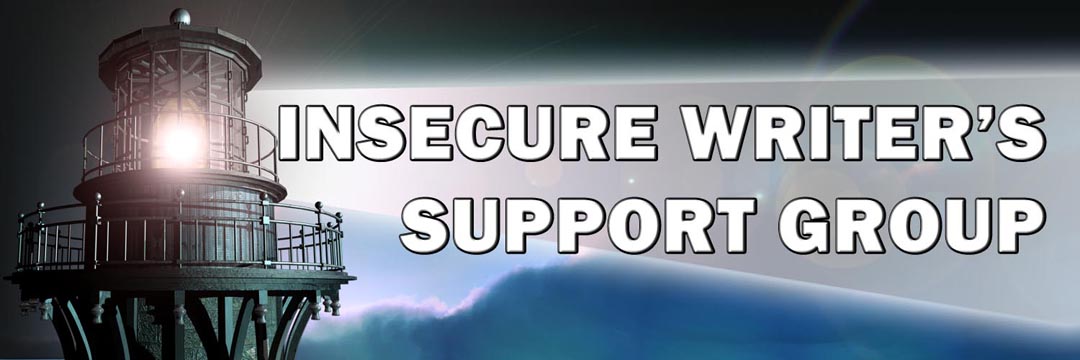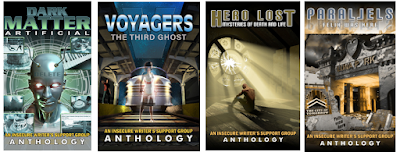The one question I’m asked more than any other isn’t about any technical aspect of writing. It’s not about where I get my ideas or how I got published. No, the one question I’m asked the most is ‘how do you get so much done.’
To be honest, it’s kind of embarrassing.
The answer to that question is this: I’m an extremely disorganized person who is prone to never finishing anything. (Ever.) So, over the years, I’ve developed a series of systems and hacks that help me to do the things I want to do.
And as a result, I tend to get enough done that people comment on it. A lot.
I’ll give you an example. Since November, I’ve:
Written seven short stories, a novel, and half of another novel.
Edited a third novel.
Written more than 50 blog posts.
Taught six two-hour classes a week in October, November, January, and February.
Ran three two-hour workshops every week.
Held more than 100 half-hour one-on-one coaching calls with my students in December.
Managed a team of seven as we worked to keep Ninja Writers up and running.
Whew, right? Even to me that doesn’t sound like someone who struggles with disorganization or not finishing things. And, I suppose, it’s not. Anymore. But it took me a long time to get there.
I have a few tools or systems that changed my life. I’d love to share two of them with you today. Before I do though, I want to point out one more thing. My systems haven’t just set me up for doing a metric ton of work.
They’ve allowed me to figure out a way to do a ton of the exact kind of work I want to do. I get to spend all day running an amazing writing community, teaching super-talented writers, and writing my own books. Plus, I work with an incredible team.
Sometimes, it’s hard to believe this is my life.
A Tiny Goal, Pointed in One Direction
A long time ago, I realized that I wasn’t getting anything done in my pursuit to do big, big things. If I couldn’t write 2000 words or in hours-long blocks of time, I didn’t write at all. That wasn’t working for me.
And often, when I did write, it was on one of multiple projects.
As a result, I had no consistency. And even though I was writing, because I moved around from project to project, I almost never actually finished anything.
My solution was to make a goal so tiny that it would be harder to skip it than just do it. That goal was to write for ten minutes a day. Just ten. Period. If I wrote for ten minutes, I won. But those ten minutes had to be on the same project until that project was finished.
I developed a ridiculously simple little tool that we call FRED in Ninja Writers. (The Folder for Reaching the End of your Draft.) It’s just a calendar and a log. I get a star when I hit my little bitty goal. And I keep a record of my work.
It’s like magic. Honestly.
You can download your own FRED for free here.
Obviously, I write for more than ten minutes a day. But my tiny goal and FRED make sure that I write something every single day. Some days I can write a lot more. Others, I can’t. That’s okay. The magic is in steady progress.
A Planning System that Works With my Brain
My planning system has evolved over time. And to be honest, it’s still shifting.
One of the most important planning systems I put into place was keeping a single notebook, rather than just picking up any old pad of paper when I wanted to write things down. My everyday notebook is my second brain. Everything goes in there.
I also keep several planners.
One is a day-over-two-pages book where I note all my Ninja Writers appointments and everything else that’s scheduled.
One is a notebook that’s far more free-flowing and artistic--I keep a daily to-do list in it. Because it’s creative and fun, I love to work in it, which keeps me on task with everything else.
One is a monthly calendar I use for future planning.
And lastly, I have a small planner in my wallet that goes with me everywhere.
Here’s a video of me setting up my planners for a week.
I’m aware of how ridiculous my planning system might seem to someone who doesn’t live in my brain. But look back at that list of all the things I’ve done in the last four months. It works--for me.
As my planning system evolved, I realized things about myself. I don’t do well with digital calendars or planners. Analog works for me.
I need to write something down to remember it. I need to see my entire month in one glance, but I also need to be able to plan out each individual day. A weekly planner doesn’t work well for me.
I can switch gears between one project and another pretty easily, so time-blocking works for me.
I’m motivated by simple rewards. That means a sticker on my calendar and an unbroken streak are enough to keep me making a little progress every day. Carrots work for me, sticks not so much.
If something makes me happy, I’ll keep coming back to use it. My more artistic daily notebook and my everyday notebook make me happy, so I use them every single day. I’ve set up Asana and Google Calendars and Trello so many times, and then never looked at them again.
Bottom line is, finding the systems that work for you and with the way your brain works is important if you’re working to improve productivity and efficiency as a writer.








